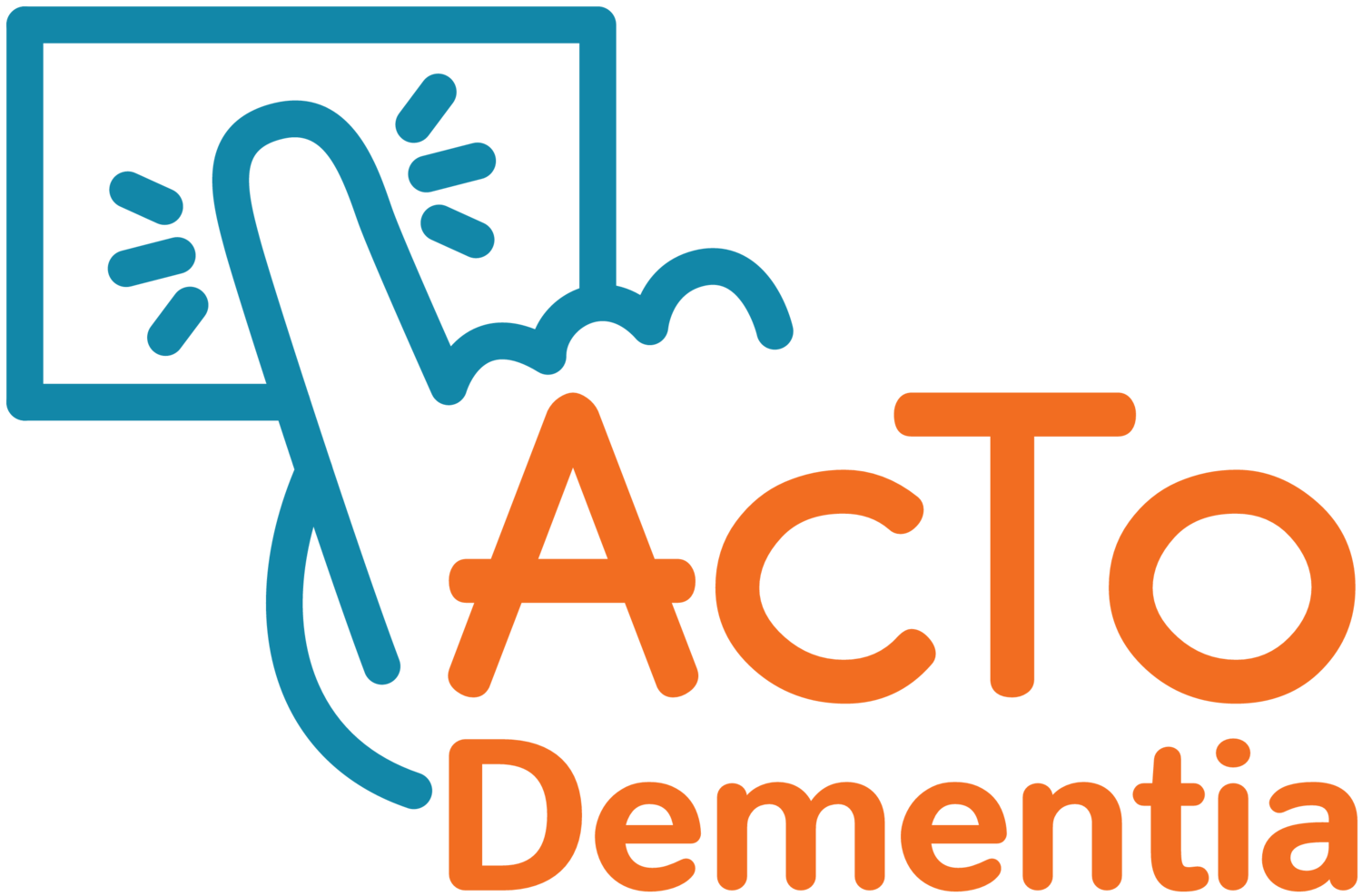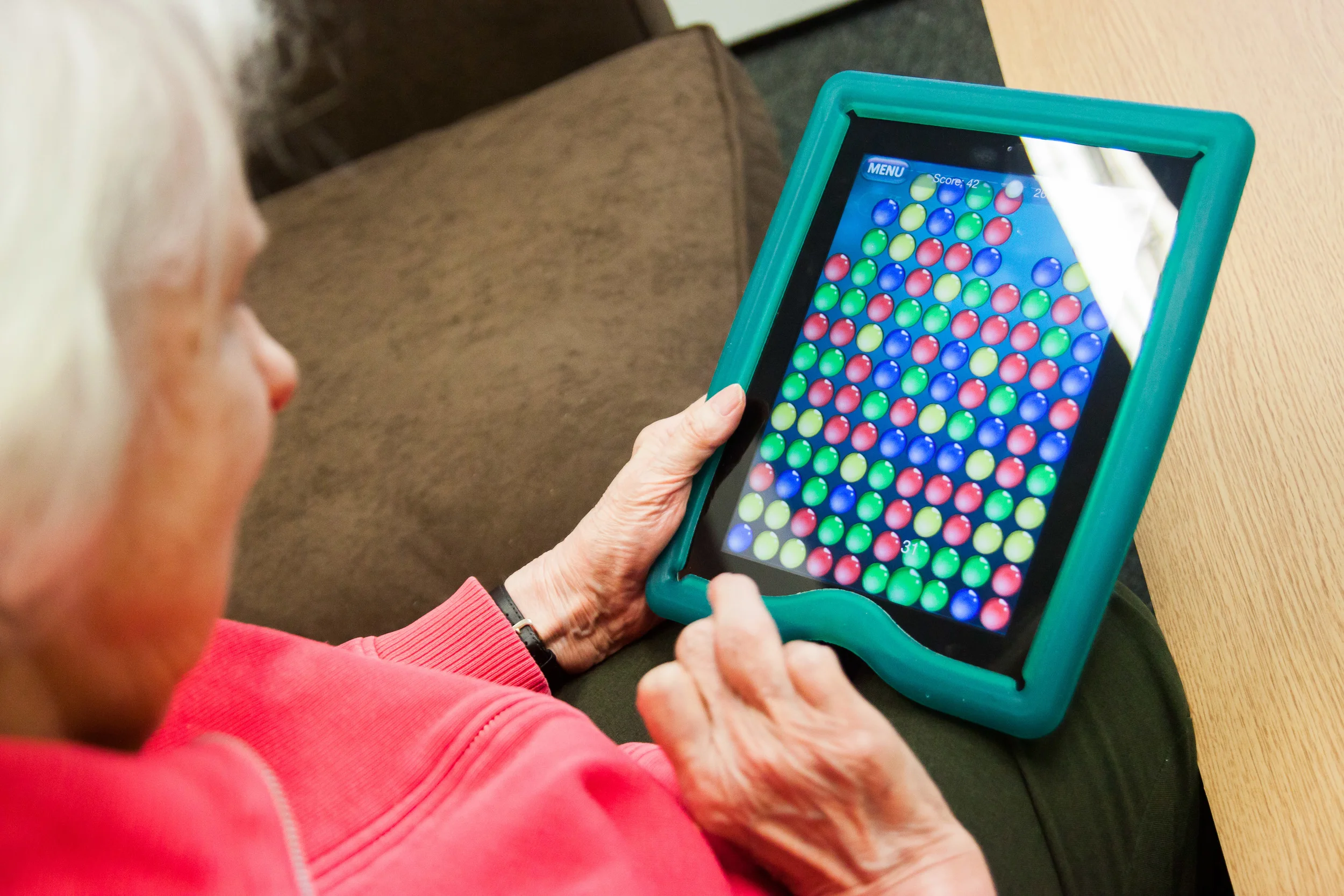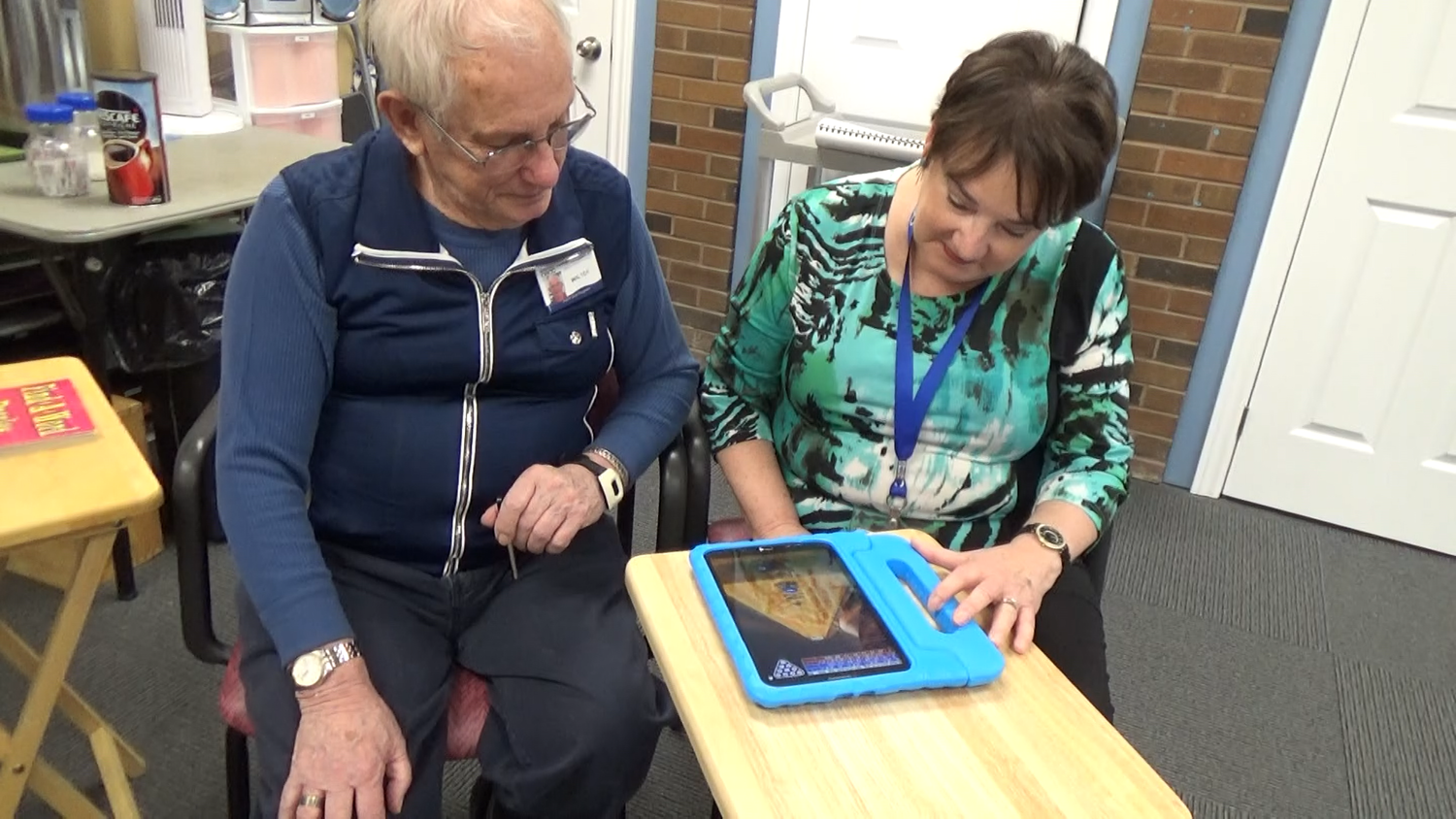Our Work
Read about our work on the AcTo Dementia project and catch up with our researchers' previous projects involving the use of touchscreen technology with people living with dementia.
AcTo Dementia
The AcTo Dementia project is focused on:
Identifying key features within touchscreen apps that increase their accessibility for people with dementia
Developing a shareable framework that can be used to find existing ‘dementia-enabling’ touchscreen apps
Working with app developers to improve the accessibility of existing apps for people with dementia
Sharing app recommendations and support guides for people with dementia or people in a supportive role
Read our evidence-base by following the links below.
Research Team
Our researchers have extensive experience working with people with dementia and using technology to support and enhance their lives.
Dr Phil Joddrell
CATCH, The University of Sheffield
Juanita Atton
KITE Research Institute University Health Network
Joddrell, P., & Astell, A. J. (2019). Implementing accessibility settings in touchscreen apps for people living with dementia. Gerontology, 1–11. https://doi.org/10.1159/000498885
Joddrell, P. (2017). Investigating the potential of touchscreen technology to create opportunities for independent activity with people living with dementia. The University of Sheffield.
Joddrell, P., & Astell, A. J. (2016). Studies involving people with dementia and touchscreen technology: A literature review. JMIR Rehabilitation and Assistive Technologies, 3(2), e10. https://doi.org/10.2196/rehab.5788
Joddrell, P. & Astell, A. J. (2016) Dementia: There are so many apps for that... Journal of Dementia Care, 25(1):32–34.
Joddrell, P., Hernandez, A., & Astell, A. J. (2016). Identifying Existing, Accessible Touchscreen Games for People Living with Dementia. In K. Miesenberger, C. Buhler, & P. Penaz (Eds.), Lecture Notes in Computer Science (pp. 509–514). Berlin: Springer International Publishing.
InTouch
The InTouch project was an international, multi-disciplinary research project investigating the potential of independent touchscreen gaming for people living with dementia. Researchers from the universities of Rotterdam, Sheffield and Toronto collaborated between 2011-2014 on three distinct areas:
Proud to Play iPad case: A specialised case for the Apple iPad developed as a PhD project by an Industrial Design student, and tested in practice. The case increases the usability of the iPad for people living with dementia by providing stability, security and accessibility.
Development of original games: Based on information obtained from the observed use of multimedia technology in health care institutions and conversations with people living with dementia, three prototypes of specialised 'Happy Games' were developed.
Evaluation of existing games: Phase one involved the evaluation of ten existing apps on the Apple iPad in three different contexts: daily care, small-scale living and nursing care. Phase two focused on two existing iPad games as a comparison between familiar and novel activities.
Let’s Connect
Let’s Connect is a community-based project making touchscreen tablets available to people with dementia or Mild Cognitive Impairment (MCI).
Our 8-session program is delivered twice a week as part of a group activity
Let’s Connect is currently being delivered in Adult Day Programs and Long-term care homes across Durham Region of Ontario, Canada
Find resources and more information about Let’s Connect here.
We train volunteers and staff members to support people with dementia or MCI to play games on tablets - see below to download our manuals in English and Spanish
Additional Resources and Publications
Using Touchscreen Tablets with People with Dementia. Journal of Dementia Care.
- This article published on March 2020, discusses the Let’s Connect Project from its creation to the community-based results
Exploring the potential of touchscreen computer technology in promoting enjoyable activities with people living with dementia
This PhD project investigated the use of touchscreen computers to promote enjoyment in both group and individual activity sessions. The findings were that touchscreen computers can facilitate enjoyable activity with people in the moderate to later stages of the condition in a group context. However, enjoyment was ‘in the moment’ and did not extend between sessions.












